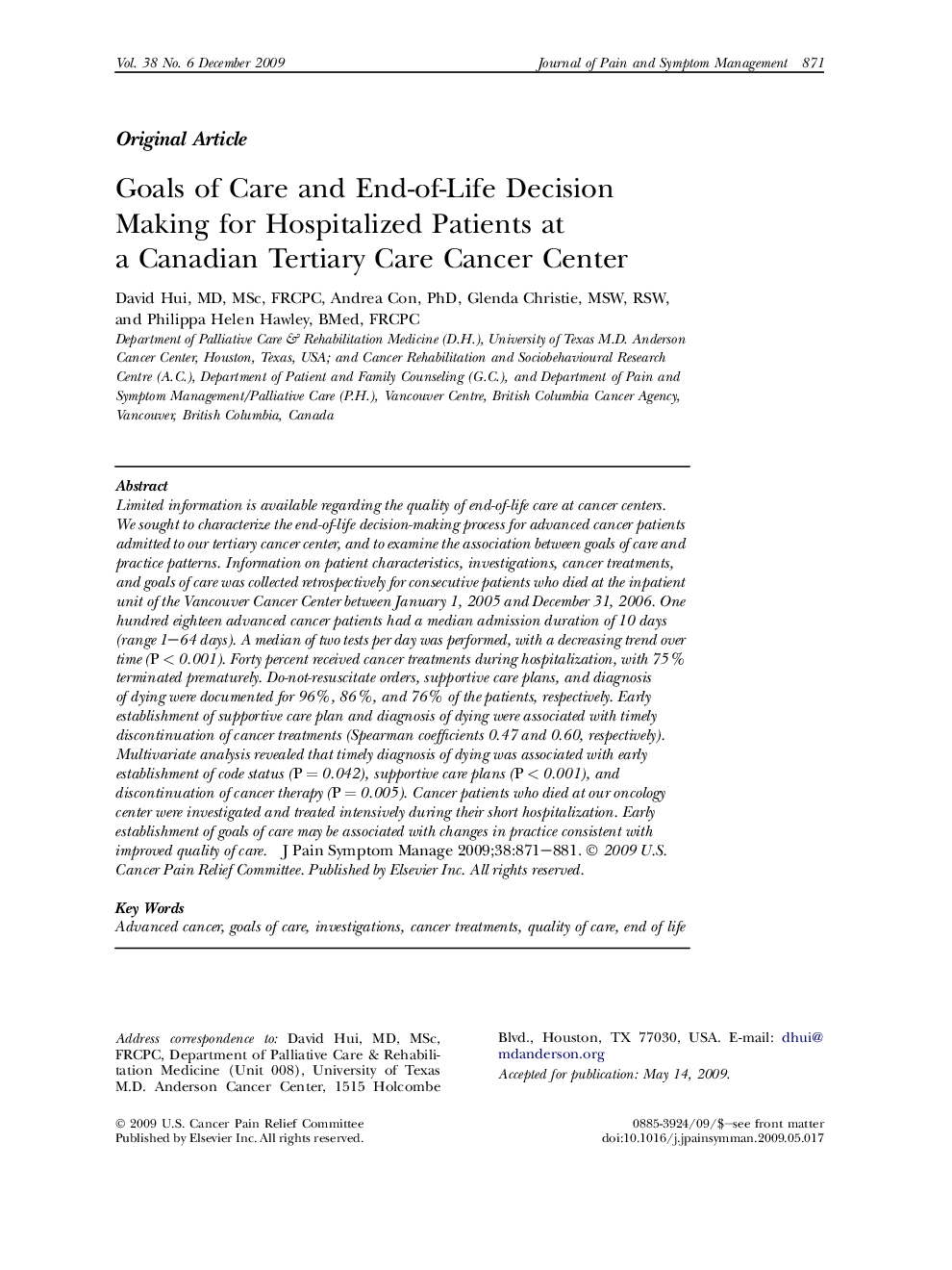| Article ID | Journal | Published Year | Pages | File Type |
|---|---|---|---|---|
| 2730054 | Journal of Pain and Symptom Management | 2009 | 11 Pages |
Limited information is available regarding the quality of end-of-life care at cancer centers. We sought to characterize the end-of-life decision-making process for advanced cancer patients admitted to our tertiary cancer center, and to examine the association between goals of care and practice patterns. Information on patient characteristics, investigations, cancer treatments, and goals of care was collected retrospectively for consecutive patients who died at the inpatient unit of the Vancouver Cancer Center between January 1, 2005 and December 31, 2006. One hundred eighteen advanced cancer patients had a median admission duration of 10 days (range 1–64 days). A median of two tests per day was performed, with a decreasing trend over time (P < 0.001). Forty percent received cancer treatments during hospitalization, with 75% terminated prematurely. Do-not-resuscitate orders, supportive care plans, and diagnosis of dying were documented for 96%, 86%, and 76% of the patients, respectively. Early establishment of supportive care plan and diagnosis of dying were associated with timely discontinuation of cancer treatments (Spearman coefficients 0.47 and 0.60, respectively). Multivariate analysis revealed that timely diagnosis of dying was associated with early establishment of code status (P = 0.042), supportive care plans (P < 0.001), and discontinuation of cancer therapy (P = 0.005). Cancer patients who died at our oncology center were investigated and treated intensively during their short hospitalization. Early establishment of goals of care may be associated with changes in practice consistent with improved quality of care.
